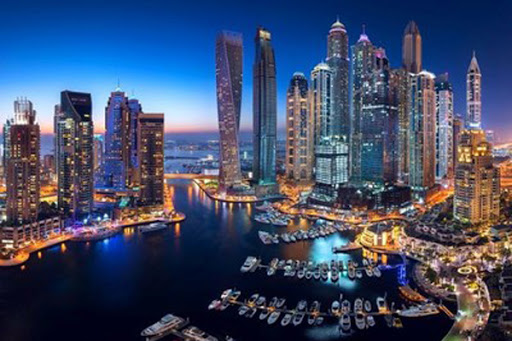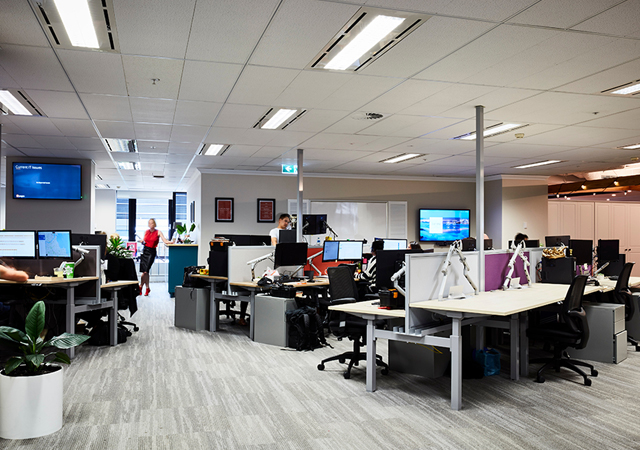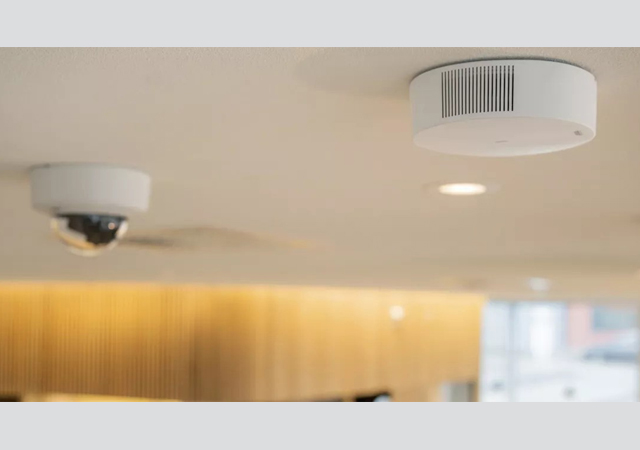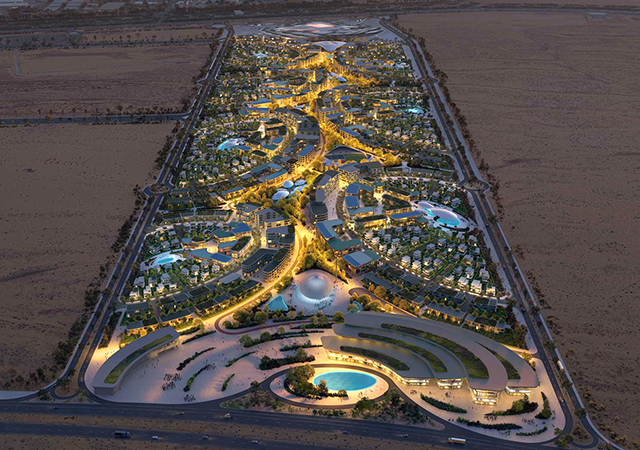
The ratings of three major Dubai-based real estate development companies - DIFC Investments, Emaar Properties, and its retail subsidiary Emaar Malls - have been downgraded on increased economic pressures stemming from the spread of Covid-19 pandemic, according to a report by S&P Global Ratings.
Dubai faces a deeper economic contraction in 2020 than the about three per cent decline it experienced due to the 2009 financial crisis, it stated.
Despite the gradual easing of containment measures and reopening of businesses since late May, overall macroeconomic conditions remain challenging, said S&P Global Ratings in the report.
In its review, the top ratings agency said: "We expect Dubai's open economy to suffer a significant shock from the Covid-19 pandemic. Based on publicly available information, Dubai's economy relies heavily on retail, logistics, tourism, and real estate, which we expect to only partly recover by 2021. As a result, we now expect Dubai's real GDP will shrink by about 11 per cent in 2020, compounding the economic slowdown that began in 2015."
Global travel restrictions, including suspension of most international passenger flights, and social distancing constraints will continue to significantly weigh on Dubai's tourism and hospitality sectors.
Dubai's hosting of the Expo in 2020, which was expected to boost the economy, has been reportedly postponed to 2021. We also project a sharp decline in domestic consumption and business investment in the region in 2020 on the back of reduced household income and uncertainties as to the recovery path in the post-pandemic period.
S&P Global Ratings pointed out that Dubai's economy would recover to 2019 levels of nominal GDP only in 2022. Following a rebound of about 5% next year, it expects Dubai's real GDP growth will slow to two per cent through 2023, below the historical average of four per cent for the last 10 years.
Regional demand will likely remain subdued, amid relatively low oil prices to which Dubai's economy is indirectly exposed, it stated.
The UAE's imposition of an embargo on Qatar, compliance with US sanctions on Iran, and the US and China trade war will continue weighing on Dubai's transshipment trade flows, which have been sluggish since 2016.
"Against the backdrop of Dubai's economic contraction, we expect its fiscal position to deteriorate to a deficit of about four per cent of GDP, well beyond the budgeted deficit of 0.6 per cent of GDP. We expect government revenue to fall sharply in 2020, followed by only a shallow recovery in 2021. We note that non-oil revenue, including fees and fines, value-added tax, and investment income, account for about 94% of total government revenue," said S&P Global Ratings.
"We expect all of these areas to be affected by the decline in economic activity. Fiscal risks might also arise should the financial performance of government-related entities (GREs) most exposed to the pandemic deteriorate, including aviation (Emirates Group), logistics (DP World), and hospitality (DXB
Entertainments, Jumeirah Group), it stated.
In response to rising fiscal pressures, the Dubai government announced a 50 per cent reduction in capital spending, including delaying new construction projects and cutting administrative spending by about 20 per cent.
These reported measures are unlikely to be sufficient to offset the shortfall in fiscal revenue. Risks to fiscal performance could arise if revenue declines further and expense associated with various fiscal stimulus measures to mitigate the economic fallout from Covid-19 increases, according to the report.
"In our view, weakened fiscal position accompanied by an increase in government debt would further constrain the government's ability to provide additional financial support to its GREs. We estimate GRE sector debt at about $60 billion, equal to 52 per cent of 2019 GDP," it stated.
Dubai is an important international aviation hub, as well as a tourism and shopping destination.
Dubai reportedly received 16.7 million tourists in 2019 and aviation, tourism, and retail are three
key employment sectors.
"After months of travel bans, Dubai reopened on July 7, although we expect it will take several quarters for the international passenger and tourism numbers to normalize. We understand that tightened travel restrictions have affected hotel occupancy, causing many hotels to close temporarily and we think some hotels may remain closed for six to 12 months until tourism prospects improve. As a result, we also expect the occupancy levels and the average daily rates to decline substantially this year," stated S&P Global Ratings in its review.
"We also see visible declines in footfall and spending levels for shopping malls, particularly those that cater to tourism. Another important part of the Dubai's economic activity is real estate. The supply-demand imbalance in the realty sector, appears to have been exacerbated by the pandemic," it added.
S&P Global Ratings also cautioned that the international demand for Dubai's property could be subdued, and the fall in residential prices steeper than expected, lingering well into 2021.
Given the significant topline pressure and lack of visibility on recovery, reducing operating expense is the primary focus for the key operators in all these sectors.
"We have already begun to see sizeable lay-offs and salary cuts in the region and we expect this trend to continue throughout 2020. The negative employment trends in the region, including Dubai's key sectors, also imply potential pressure on otherwise less vulnerable sectors such as telecoms, utilities, education, and food retail," the ratings agency said.
The downgrade reflects heightened fiscal pressure in Dubai, which we think has weakened the
government's ability to support its key GREs, it stated.
"Although we do not have a public rating on Dubai, we believe its creditworthiness will likely be adversely affected by a wider fiscal deficit in 2020 than budgeted, along with a shallow economic recovery in 2021," it added.
S&P Global Ratings said: "Although we still consider DIFCI to be a GRE with a very important role for and very strong link to Dubai, increased economic and fiscal pressures appear to have weakened the government's ability to support DIFCI. Therefore, our rating on DIFCI reflects its stand-alone credit profile (SACP)."
"The stable outlook reflects our expectation that DIFCI will withstand the current softening in the
Dubai office market that will result in weakening revenue and cash flow generation," it added.
On Emaar and its retail subsidiary, S&P Global Ratings said: "We think Covid-19-induced economic recession globally and in Dubai specifically will have a significant negative bearing across all Emaar Properties' business segments. We foresee a 30%-40% contraction in Emaar Properties' Ebitda in 2020 as a result of sharp decline in its revenue that could reach 15 to 20 per cent."
"Under our base case, we anticipate a significant revenue drop not only in Emaar Properties' cyclical real estate development business, but also notably in the historically more resilient leasing operations. Hospitality, leasing, entertainment businesses, and the retail sector have been particularly vulnerable to travel restrictions and social distancing measures," it stated.
In real estate development, S&P Global Ratings expects demand from international buyers, which typically accounts for about 60 per cent of sales, to remain subdued for at least the remainder of 2020.
"We also believe that the anticipated recovery in 2021 will be only partial, dependent on the
pandemic situation and the pace of recovery of Dubai's economy. We think the economic stress
prompted by Covid-19 has underscored the inherent weakness in Emaar Properties' business risk
profile related to high asset concentration in one country, especially given the additional high
reliance on tourism," it said.
The ratings agency pointed out that its negative outlook on Emaar Properties reflects the view that its performance and credit metrics may not recover in 2021 if the number of tourists remains low, and Covid-19 extends into next year and remains a serious threat compromising consumers' spending and investment decisions, it added.-TradeArabia News Service






.jpg)









.jpg)




































.jpg)

